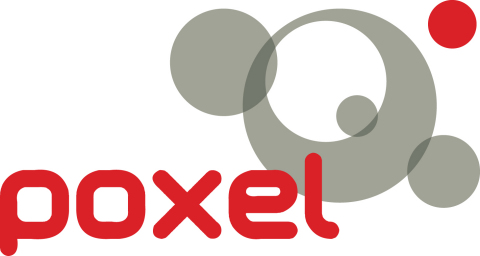Poxel Announces Publication in Kidney International of PXL770 Preclinical Results in Autosomal Dominant Polycystic Kidney Disease (ADPKD)
Poxel Announces Publication in Kidney International of PXL770 Preclinical Results in Autosomal Dominant Polycystic Kidney Disease (ADPKD)
- Results support the development of PXL770 in a Phase 2 clinical program for ADPKD
LYON, France--(BUSINESS WIRE)--Regulatory News:
POXEL SA (Paris:POXEL) (Euronext: POXEL - FR0012432516), a clinical stage biopharmaceutical company developing innovative treatments for serious chronic diseases with metabolic pathophysiology, including non-alcoholic steatohepatitis (NASH) and rare metabolic disorders, announced today the publication of preclinical results in autosomal dominant polycystic kidney disease (ADPKD) for PXL770, a novel, first-in-class direct adenosine monophosphate-activated protein kinase (AMPK) activator.
To access the publication online in the life sciences journal, Kidney International, please use the following link: A novel direct adenosine monophosphate kinase activator ameliorates disease progression in preclinical models of Autosomal Dominant Polycystic Kidney Disease. (kidney-international.org)
“ADPKD remains a major cause of end stage renal disease and is associated with substantial additional unmet medical needs. Since the only approved medicine for ADPKD, tolvaptan, has moderate efficacy and known liabilities, new therapeutic approaches are urgently needed,” said David E. Moller, MD, Executive Vice President and Chief Scientific Officer of Poxel, “AMPK has been strongly implicated as a target for ADPKD where pathophysiology involves metabolic perturbations and is closely related to key biochemical pathways that are modulated by AMPK activation. Here, for the first time, we showed beneficial effects of a direct and selective AMPK activator in preclinical ADPKD models from three species mouse, human, and dog. These results confirm the potential utility of AMPK activation for this disease and support the development of PXL770 in a Phase 2 clinical program for ADPKD.”
About ADPKD
Autosomal dominant polycystic kidney disease, or ADPKD, is a form of chronic kidney disease which is caused by mutations in the PKD1 or PKD2 genes. This causes multiple cysts, or pouches filled with fluid, to form in the kidneys. Autosomal dominant (AD) relates to how the disease is passed down from the parent to child. With ADPKD, cysts develop and grow in the kidneys over time. These cysts continuously grow, causing the kidneys to increase in size and volume. Over time, the growing cysts make it harder for the kidneys to function and eventually lead to kidney failure. Most people with ADPKD have pain, high blood pressure, and kidney failure at some point in their lives.
ADPKD is the fourth leading cause of chronic kidney disease (CKD), affecting 1 in every 400 to 1,000 people (approximately 140,000 patients in the US) and is the most common kidney disorder passed down through family members. More than 50% of ADPKD patients develop renal failure by age 50, followed by dialysis and/or kidney transplantation. Only one drug, tolvaptan, is approved to attenuate progression and is associated with severe liver adverse events and poor tolerability (polyuria).
About Poxel SA
Poxel is a clinical stage biopharmaceutical company developing innovative treatments for chronic serious diseases with metabolic pathophysiology, including non-alcoholic steatohepatitis (NASH) and rare disorders. For the treatment of NASH, PXL065 (deuterium-stabilized R-pioglitazone) met its primary endpoint in a streamlined Phase 2 trial (DESTINY-1). In rare diseases, development of PXL770, a first-in-class direct adenosine monophosphate-activated protein kinase (AMPK) activator, is focused on the treatment of adrenoleukodystrophy (ALD) and autosomal dominant polycystic kidney disease (ADPKD). TWYMEEG® (Imeglimin), Poxel’s first-in-class product that targets mitochondrial dysfunction, is marketed for the treatment of type 2 diabetes in Japan by Sumitomo Pharma and Poxel expects to receive royalties and sales-based payments. Poxel has a strategic partnership with Sumitomo Pharma for Imeglimin in Japan, China, and eleven other Asian countries. Listed on Euronext Paris, Poxel is headquartered in Lyon, France, and has subsidiaries in Boston, MA, and Tokyo, Japan.
For more information, please visit: www.poxelpharma.com
All statements other than statements of historical fact included in this press release about future events are subject to (i) change without notice and (ii) factors beyond the Company’s control. These statements may include, without limitation, any statements preceded by, followed by or including words such as “target,” “believe,” “expect,” “aim,” “intend,” “may,” “anticipate,” “estimate,” “plan,” “project,” “will,” “can have,” “likely,” “should,” “would,” “could” and other words and terms of similar meaning or the negative thereof. Forward-looking statements are subject to inherent risks and uncertainties beyond the Company’s control that could cause the Company’s actual results or performance to be materially different from the expected results or performance expressed or implied by such forward-looking statements. The Company does not endorse or is not otherwise responsible for the content of external hyperlinks referred to in this press release.
Contacts
Contacts - Investor relations / Media
Aurélie Bozza
Investor Relations & Communication Senior Director
aurelie.bozza@poxelpharma.com
+33 6 99 81 08 36
Elizabeth Woo
Senior Vice President, Investor Relations & Communication
elizabeth.woo@poxelpharma.com
NewCap
Emmanuel Huynh or Arthur Rouillé
poxel@newcap.eu
+33 1 44 71 94 94
